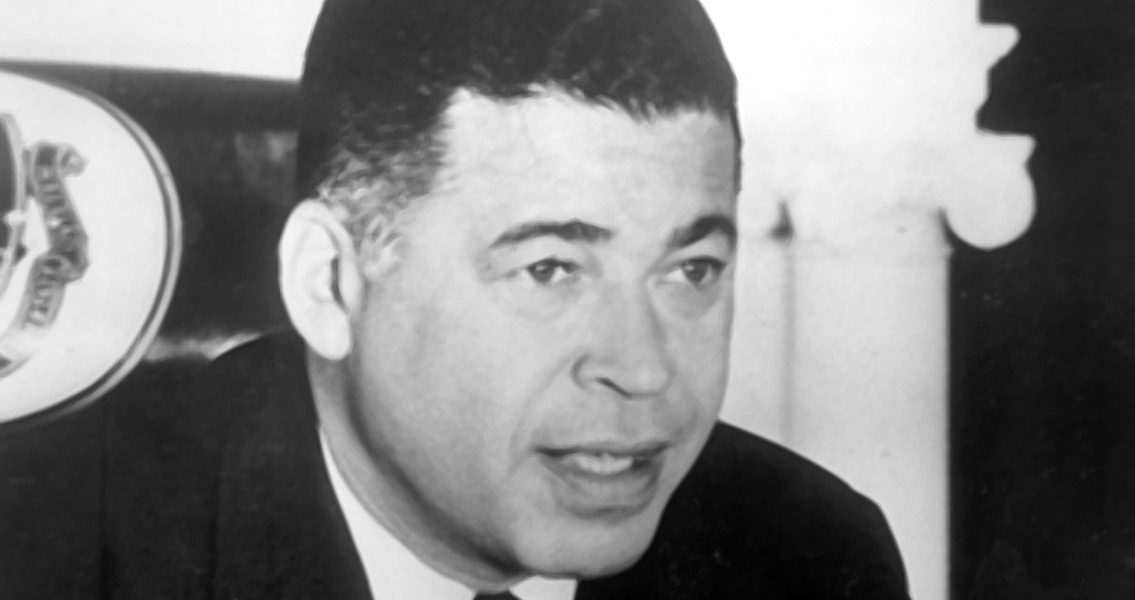<![CDATA[Edward W. Brooke, the first African American elected to the United States Senate through the popular vote, died on the 3rd January at his home in Coral Gables, Florida. According to former aide Ralph Neas, Brooke died of natural causes, surrounded by his family. A Republican, Brooke was elected to the Senate in 1966, becoming the first African American to serve there since the Reconstruction era. Brooke was one of only nine black people, including Barack Obama, to have ever served in the US Senate, highlighting the extent of his achievement and the historic racial imbalance in American politics. Brooke was unique in that his election came via the popular vote. Black people had served in the Senate during the Reconstruction era of the 1870s, in the aftermath of the American Civil War. This was when state representatives were chosen by state legislatures rather than popular election. Mississippi's Republican led legislature sent two black men to the Senate. Hiram R Revels served for around fourteen months from 1870, and Blanche K. Bruce served a full six year term, starting from 1875. A Protestant Republican representing a state that was more than 95% white, predominantly Catholic, and traditionally majority Democrat, Brooke's election in Massachusetts over two terms seemed unlikely. It was a crucial moment of contrast at the height of the Civil Rights movement. Brooke was not explicitly a civil rights activist, but his election revealed it was possible for an African American to achieve acceptance, to the extent they could be chosen to represent a majority white community. At a time of great conflict over racial segregation, this sent a powerful message, that "millions of white voters remained unshaken in their commitment to decency", as Martin Luther King commented at the time. Born in October 1919, Brooke was raised in a middle class family. His father, also called Edward, worked as an attorney reviewer for the Veterans Administration. Brooke's childhood was spent mostly living in black neighbourhoods, although a spell living in a strictly segregated white neighbourhood meant he had an acute awareness of the divisions across American society in the twentieth century. Nevertheless, he claimed to have had a pleasant childhood, and was quoted in John Henry's Biography as saying he had never experienced racist violence or abuse. This could explain why both his election campaigns and time in office rarely engaged civil rights issues directly, and instead focused on his political duties as representative of Massachusetts. His political career was distinguished, and he won popularity for his ability to avoid bowing to the conservative elements of the Republican party. He served on the Appropriations Committee, and became the leading Republican on the Banking Committee, allowing him significant influence American commerce, monetary and housing policy. Brooke had a reputation as a liberal within the Republican party, a reputation confirmed when he became one of the first senators to publicly urge Richard Nixon to resign from the presidency in the wake of the Watergate scandal. He played a key role in supporting the women's Equal Right's Amendment, and in one of the few examples of him becoming directly involved in race politics, campaigned in favour of school busing as a means to achieve racial integration, a deeply controversial issue in Massachusetts at the time. A campaign for a third term ended in defeat, in large part because Brooke had been embroiled in a very public scandal. A tumultuous divorce resulted in an investigation of the senator's personal finances by the Senate Ethics Committee and the State Welfare Department. The mass of media attention surrounding supposed irregularities in his finances, ultimately destroyed the popularity of a politician whose reputation had been built on exposing corruption. Brooke's political career was a remarkable one. Although he was not part of the important triumphs of the Civil Rights movement, he symbolised the potential for a political system that could move beyond questions of race. Brooke proved that it was possible for a black politician to win white votes, something which has been confirmed since with Barack Obama's presidency. At a time in the 1960s when racial conflict was still prevalent, his career represented what had already been achieved on the path to integration and equality. ]]>
Edward Brooke
